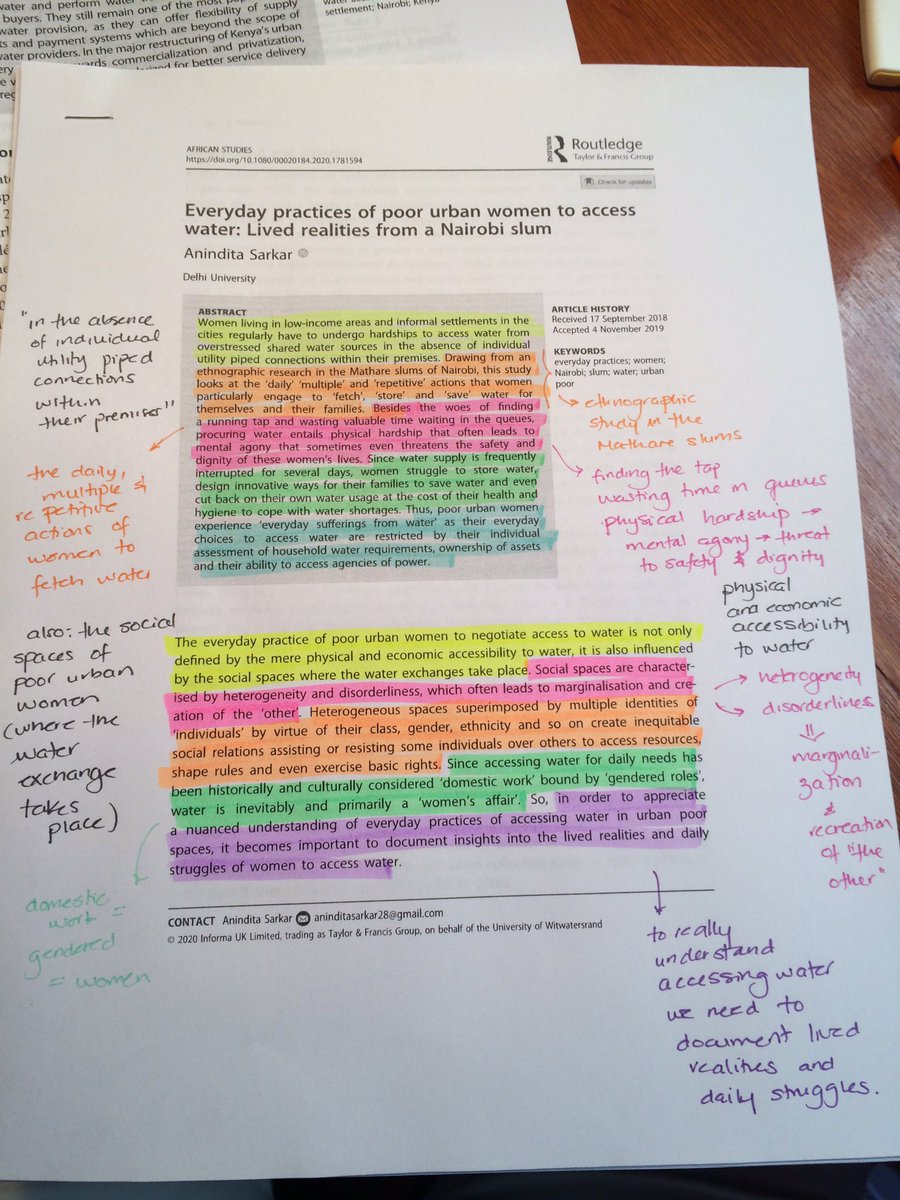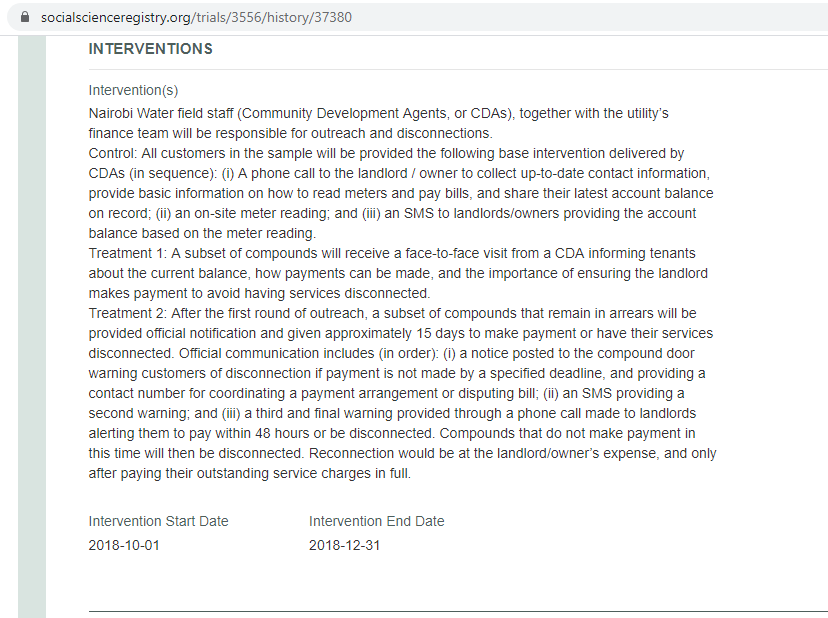As I always do, I'm going to use examples of other scholars' writing.
1) everyday practices of women accessing water are defined by physical/economic access, but also mediated by the social spaces within which these women operate.
I try to design my paragraphs in a way that there is ONE IDEA.
raulpacheco.org/2015/04/my-acw…
Once we have the outline with Topic Sentences and/or Triggering Questions, we can start filling up those paragraphs one by one, sentence by sentence.
raulpacheco.org/2018/04/125-25…
1) @rachaelcayley suggests writing ideas in continuous flow, and THEN use Breaking Points to break up paragraphs explorationsofstyle.com/2014/02/21/bre…
- Main Idea
- Evidence
- Analysis
- Link back - link forward
patthomson.net/2018/11/05/get…
- Topic sentence
- Argument/body
- Token sentences (evidence)
- Wrap sentence ("end of paragraph" marker)
medium.com/advice-and-hel…
- say no to 2-sentences' paragraphs (3-7 is readable, >9 becomes almost impossible to clearly comprehend )
If I have to be 100% honest with you all y'all, I really DO NOT LIKE Hayot's paragraph inverted U structure.
But I found different insights, and to be quite frank, I am not sold on the inverted U.
We need to consider two components:
1) the STRUCTURE of the paragraph
and
2) the CONTENT of the paragraph.
Booth, Coulomb and Williams' original CREW model (claim, reasoning, evidence, warrant) has evolved, but it is very helpful. raulpacheco.org/2019/07/the-cr…
Or you can use the Graf & Birkenstein "They Say/I Say" set of templates to develop your argument raulpacheco.org/2017/05/they-s…
In this thread, I've provided a few different strategies to STRUCTURE and develop the argument that will form the CONTENT of your paragraph.
Hopefully this approach will be useful.
END OF THREAD.
This thread in handy blog post format.
Remember: you can use the social buttons at the end of each post to reshare on Twitter, Facebook and Pinterest.






